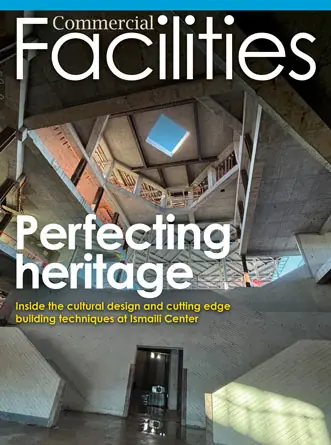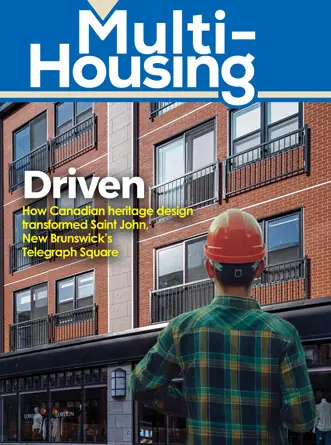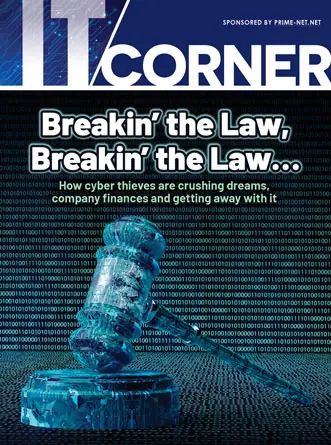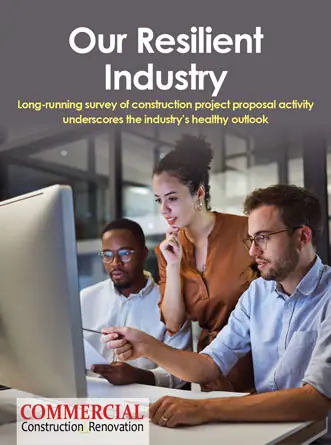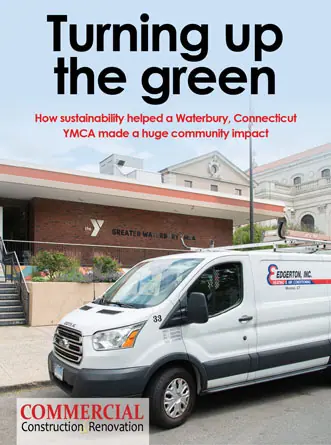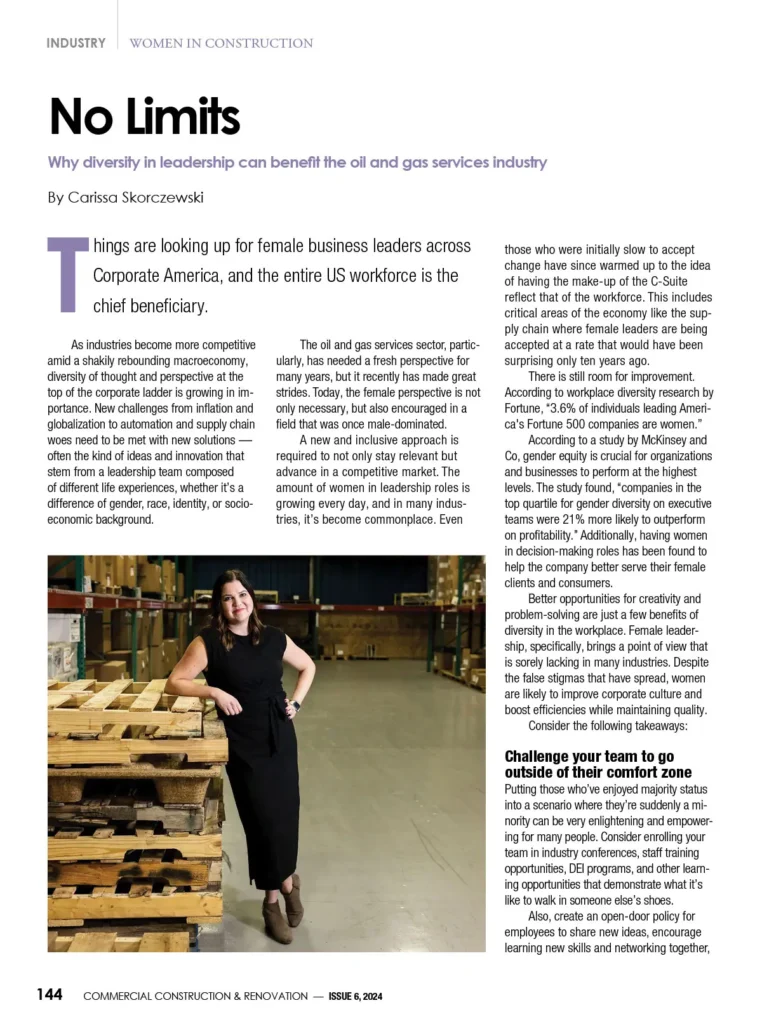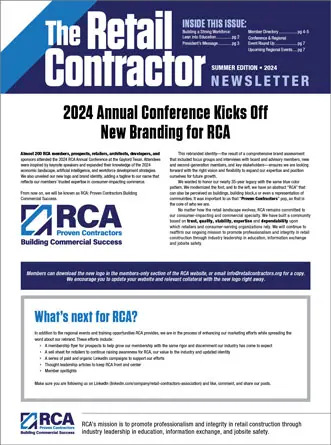CCCT with Chris Munz, VP of Growth from Voosh Hospitality Technology Video
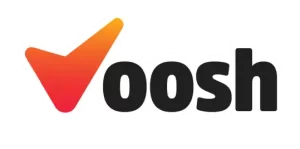
Starting as a virtual brand operator with 150+ restaurant partners, we faced a challenge – no unified platform for vital data from third-party marketplaces, hindering off-premise growth. This led to Voosh, democratizing tech for food operators. Our robust Restaurant Marketplace Intelligence Platform enhances efficiency, customer experience, and third-party profits.
Backed by top Silicon Valley funds, including Y Combinator, Voosh delivers impact. 200+ restaurants grew third-party sales 20%, saving hours weekly. Join our mission to revolutionize dining.
#technology #software #restaurants #hospitality #delivery #food #marketplace
Transcript
Hey there, commercial construction Coffee Talk fans. Thanks for chiming in. My name’s David Corson, I’m your host. I’m also the publisher and editor of Commercial Construction & Renovation Magazine. Well, this is what it used to look like. We’re digital now, but sure feels great in my hands. This is May June 2018. Padon Jr. from Plad Down Hospitality Partners, thanks for being on the cover. We loved it. And I always like seeing what I was doing, throwing some axes. It’s my Publisher’s page way back when. I think this was either in Nashville or Charlotte, I forget. We were doing our cocktail parties before the roller coaster started in 2020. Anyway, had a great time, and that’s where that picture is. But another healthy-looking issue, this was 296 pages. Anyway, just chock-full of stuff. But like I said, we’re digital now. Don’t miss the printer, don’t miss the post office. Best decision we ever did. And millions of people hitting our website, and without all you out there, thank you so much for finding us on the web and watching some of these episodes, as well as reading the magazine. It’s TGIF today, looking forward to the weekend. Congratulations to the Texas Rangers winning their first World Series down in Arlington. And I know they’re going to have a big parade. What an exciting time for those guys. Listen, whenever a team wins their first Championship, you know it’s always first. You get second, third, it’s great, but winning it the first time is just a really special thing. So congratulations to those guys. It’s a long season, 164 games, and they got to go through the playoffs and all that stuff, and all the practice and the travel and gut-wrenching decisions and close games, and here we are, you get it done, and you end up being able to raise the championship trophy. So congratulations to the Rangers. Anything else? Hey, listen, it’s football season, the NFL, you got College, everything’s going on. Basketball just started, ice hockey, and soon we’re going to have indoor lacrosse going. Our Georgia Swarm will be hitting the indoor turf, and before you know it, it’s going to be the end of the year, and we’re going to go through all the rest of the season, and then Lacrosse will be starting up in Spring. Can’t wait, go Pios. So with that said, I’ve saved the best for last today on my week recordings, talking to a special gentleman. He’s a lacrosse guy too. That’s how actually we met on LinkedIn, reached out to me, we talk some LAX, that’s how I got him on the episode. His name is Chris Muns, and he’s the Vice President of Growth, and they’re a technology provider. They help restaurateurs, you know, helping with their delivery and efficiencies and all that. So Chris, say hello to our listeners out there, Commercial Construction Coffee Talk, up from Maine, outside of Portland. I appreciate that, that was a great intro, man. I really appreciate it. Well, to meet you, it was nice to meet you on LinkedIn and have our conversation earlier today. I love talking LAX. I’ll talk LAX all day long, man. It’s why I’m who I am, I will say, and it’s been an important part of my life. And you know, it’s always nice to talk to fellow laxers. Listen, lacrosse, fastest sport on two feet, that’s just the reality of it, and it’s an American game. The Indians invented it, and it’s a homegrown sport, so it’s been really special to me. We were talking, I didn’t even pick up a lacrosse stick till I was a sophomore in prep school, and I was really a baseball guy, believe it or not, hockey and baseball. And then baseball was just too slow for me. So I don’t want to actually, so you want to hear my first lacrosse stick I ever purchased? I was because I was a baseball kid, little league, and they sold chances, and one of the prizes was a lacrosse stick. And I said, I’m going to sell enough chances to get my first lacrosse stick, and then my baseball career ended. So baseball ended my lacrosse career and ended my baseball career. They just didn’t know it. Well, you know, I played baseball all the way up through eighth grade, and then I went to prep school, and I ran track my first year. I was a hurdler, I ran cross country. I didn’t want to play football because I didn’t want to get hurt and ruin my hockey career. I was a hockey guy. I went to hockey school every summer. I just wanted to go pro, that was my ambition. And after my freshman year, I saw these lacrosse guys out, and then I can’t, you know, so I got my hands on a stick, and I played some wall ball. I came back, I played JV my sophomore year, and I said, man, I’m making the varsity my junior and senior year. I’m not, you know, so I played wall ball all summer and came back, and one of my buds that I’m still friends with, he was our senior year, he was a captain of the lacrosse team and the football team. I was captain of the hockey team. And anyway, he and I were the only juniors that made the team. Listen, we went to prep school, so you know how it goes. We had 500 people, we were all athletes, and we played all the big high schools and stuff, but basically, you were very senior heavy, you know, and you get playing time, or even to make the team if you were a junior or big-tail sophomore. So making the team was awesome, but it was like David and Goliath in New Jersey. We were a really small school. We played all the big prep schools around there, but we also played all the big high schools. So I mean, and they all wanted to beat up on the prep, and you know, yeah, oh, here comes Petty, man. We got to kick the Falcons’ tails, man. We’re not going to let those guys come in, but we gave everybody a good run for the money. And I always like being the underdog. I just think it’s a good way to play. So but you know, lacrosse guys, we kind of stick together, no pun intended. And you know, it’s just one of those things. So the way, Chris, the way that we’re going to do this is we’re going to do it in three parts. We’re going to, you’re going to tell your story, where you grew up, where you went to school, and how you ended up where you are today. And then we’ll talk about the last three years, lessons learned that we all have gone through over the last, you know, through the roller coaster, etc., and any new products that you might be pitching that our listeners out there on Commercial Construction Coffee Talk might find of interest. And then you’ll leave one positive thought or phrase, and then we’ll close it out. So with that said, the floor is yours, tell us your story. Yeah, it’s interesting. So I grew up on Long Island in New York, and hence, what town, what, say it, you know, yeah, I got to give the shout-out to Floral Park. There you go. Yeah, and the claim to fame to Floral Park is actually it’s the home of Belmont racetrack. So my high school, where I played lacrosse, right on the field there, lacrosse was where the ponies would train. And so I’d sit in English class and watch them do a little timing, you know, see who’s running fast, you know, or not fast, you know, for that day’s race or whatever. And it was exciting, you know, from that aspect of it. You know, it’s just New York is just a global in of life. So to grow up there for 18 years of my life was really exciting. Realized that I wanted to do two things in my life: wanted to play lacrosse and I wanted to get a degree in Recreation. And at the time, I wanted to be a park ranger. Wow, yeah. So, you know, I’m an Eagle Scout, and I’ve always loved the outdoors, was big into the Boy Scouts, and hiking and camping, and all those things, canoeing, and stuff. And so my cross coach helped me find a school. He sat down all the juniors, and he said, listen, what do you want to do in life? How, where, what do you want to study? Do you also want to play lacrosse? And he went out and found schools for each one of us that fit that. And he found a school called Radford University, small little liberal arts school in just outside of Roanoke, and Blacksburg in Virginia. And they had a Division One lacrosse team, and then on top of it, they had a wonderful outdoor recreation management program. Awesome. And so I spent four years in the hills of Virginia, studying Recreation, playing lacrosse, and I really enjoyed it. It was an experience like any other. To put it in context, my final project to get out of school was to be the raft guide for the Boy Scouts on the New River, and it was an amazing experience. They gave me 12 credits for it. And the other reason that I went to a school in Virginia was that I’m a history buff, and I always wanted to know how history was told in other parts of the United States because it’s uniquely different. The West was settled later, the South, the North and South had a war, and so people think differently and have been taught differently based on geography. I always said that I went there to find out how history was told. And I absolutely did learn. Living in Georgia yourself, you see it too. Listen, I’m a damn Yankee because I came down here in ’92, and I stayed here. The land is full of history anywhere you go down to the South. Some of the cities got burned, some of them didn’t. My son lives in Charleston, and there’s so much history. Virginia, you know, Thomas Jefferson came from there. It’s awesome to visit any time of the year. Depending on where you are in the country is going to mold you. New Yorkers are completely different than people in the South, and the South ends basically when you get to the Georgia-Florida line. Florida, I really don’t consider it the South; it’s Florida. From Georgia up to Virginia, that’s basically where the South is. If you really want to understand people, you have to go where they live and ask questions. That’s why I went to school there and how I ended up in Maine. After graduating, I packed up my little Civic, spent two weeks at home, realized a Recreation guy is not going to be able to survive on Long Island living in his parents’ basement, and drove up here. Twenty-five years later, I’ve somehow figured out how to make a living. I don’t talk to many people that are Eagle Scouts. My father was one. I did the Boy Scouts but went to prep school, so there went my career in the Boy Scouts. But having your Eagle Scout, that’s a tremendous accomplishment. It’s what you get out of it. For me, Scouts was a big piece of it. I wanted to be an Eagle, and I wear it as a badge. I don’t ever say that I was an Eagle; I say I am an Eagle. It helped shape who I am today. When I moved up to Maine, I ended up working for an outfitter for a while, and my first real job was with a map company called DeLorme Mapping, now owned by Garmin. It was a fascinating company, a technology company that also did paper maps. They made the atlas and gazetteers for every state and built the world’s largest rotating globe. I worked on a project called Ladybug, a camera built to map the streets, way before Google. It was amazing and taught me that localization is very important. People think of their surroundings in a five-mile radius. If your road is wrong on Apple Maps or Google Maps, that’s a big problem. I was in sales, selling to outdoor stores, and quickly realized there’s something here with the internet and email campaigns. My sales increased, and I found a small e-service providing company, a little startup called Quotient, right downtown Portland and they had built a platform that did mass email and segmentation, did all the things that we have now become accustomed to. If they have those things from a standpoint of being able to send email from a corporate standpoint, we built this system and ended up selling it to a company. Scott Shaw, who started Fishbowl, saw that we had this system that really helped his business, and he was solely focused on restaurants. I was never in restaurants up until the day that Scott acquired our company. I spent seven years there helping restaurants understand the digital ecosystem, and it was amazing. I had opportunities to work with some of the largest brands in the world and help them shape their digital foundation. A lot of the things that they are doing today I was instrumental in helping them build those things from a foundational piece when I was at Fishbowl. From a career standpoint, it was such an opportunity, and looking back on it, I’m so grateful for everyone that I worked with at Fishbowl because it was a total team effort. I remember Fishbowl when they came out. I looked at about 50 different magazines a month during my publishing career, so I remember Fishbowl. I walk the NRA show every year and am very familiar with what you’re talking about. It came out of nowhere. They were an agency, and to Scott’s credit, he saw where the future was going. He realized that he needed to be able to blend technology and agency together because restaurants really need help and they need that handholding, but they also need the backbone of the technology. They have the staff and the knowledge now to be able to do it, and fusing it together was wonderful. It’s exactly what the industry needed, and you look at 15 years later, it’s that foundational piece. What I’m doing today is that next stage of it, dealing with marketplaces and the whole third-party aspect of business and diversifying their Channel management, which is just as important. People walking in their restaurants, driving traffic digitally, now it’s driving traffic digitally across multiple channels. If you’re a restaurant, you don’t care how your food is sold, whether they come in or if it gets delivered. It’s still a plus because it’s product going in people’s stomachs, whether it’s in the brick and mortar or at their house. They’re still ordering from you, and it goes all towards your bottom line. It doesn’t matter where they’re ordering from as a customer. Every point that they are touching your brand is an opportunity, and you have to seize those opportunities when they present themselves. It’s been an interesting journey. I’ve worked for payment companies, IoT companies, and startups. I would consider myself a startup junkie. I enjoy Leading Edge systems that are pushing the envelope to help operators. It’s always been in Hospitality. I just love the people. People in this industry gravitate to kindness, and if I can help them with a small little bit that I can do, it’s a win for everyone. The restaurant industry is not like retailers; they’re very competitive, but on the restaurant side, it’s like a family gig. They’re not as competitive; they want everybody to obviously want as many customers as coming through the doors as they can, but it’s a different kind. It’s like podcasters; we’re not competitors. The restaurant field is the same way, especially if they’re not in a big chain and they’re independent, maybe they own a couple of different types of restaurants. They have that entrepreneurial spirit but also want it to be family. They want people to be working with them for a long time, whether you’re a waiter, a cashier, or a cook. They want to maintain their employees, their hierarchy for as long as can because once someone leaves, you got to retrain someone. With technology the way it is and everything else, it’s very tough. Keeping those people employed and happy campers to stay at those places is very important. It’s just like a contractor; you don’t want your subs to leave. It’s the same concept. It’s a people business, and you have to make sure that you’re putting all the things in place and you’re learning. There’s a lot of sharing going on within this community, and that’s really important to the survival of it. To say that they can do it alone is fooling everyone and ultimately will not be successful. It does take a village, and we all need to share and create these feedback loops of information. A rising tide lifts all boats. I live in Maine, so I had to bring the nautical theme there, but it is true. If we share in our expertise and our knowledge and somebody an ounce of it and do better themselves, then we’ll win; we’ll all win. So, you’re doing the technology thing, helping the restaurants. 2020 comes up, and depending on what stage we’re in with the roller coaster and the shutdown, it didn’t hurt the restaurant industry about how you helped your clients weather that storm over the last three years and how technology kind of helped them. It really depended on where you were geographically in the country. Everybody had to transition, and now we’ve gone through all the dips, the dot-com crash, 9/11, the housing crash, but this one was different because no one really knew what was going to happen. They said it was going to be about 3 weeks, and here we are three and a half years later, and we’re still kind of talking about it, even though we’re kind of out of the woods. We’re still having little bumps and potholes that everybody’s gone through. So, talk about the last three years, in March of 2020 when things went kaput and until today, how you worked with your clients. You were still at that time, right? No, I was at another company, all centered around hospitality. You said it right, Dave, like the industry, restaurants, and hospitality. Hotels and restaurants were devastated, and unfortunately, the silver lining or the positive aspect of it was that it made them realize they had no choice but to figure out how to keep the lights on and survive. Technology was that silver lining for them. The ones that had been early adopters were the ones that thrived during those horrible times. The ones that were catching up survived, and now they’re starting to thrive because, as they say, it takes 21 days to create a habit. We took three years to create many habits, and one of the habits we created was that we like convenience, and that convenience, when it comes to restaurants, is getting our food delivered. That 3 years has completely shifted the mindset of the consumer, which has now transcended down into the restaurant ecosystem, completely changing from smaller footprints, different buildout from a kitchen perspective. Now, they have digitally third-party delivery space, ghost kitchens with multiple brands, and people putting restaurants in grocery stores or using cargo boxes and doing buildouts in those. It was actually a very good thing for the industry because it level set everybody. Now, the digitally focused brands are the ones that are going to survive and continue to grow and open up new locations because the consumer has chosen that they want the convenience of One Tap order or a DoorDash experience or a first-party experience, but all digitally. It’s opened up multiple channels of commerce that were not available five, seven, ten years ago. It was very much you go to your brick-and-mortar taco stand, get tacos, eat, and leave. Now, I could go there, I could order on DoorDash, on my third parties. My son, he works for Boeing, and he turned me on to this thing called Factor. They give you these protein meals delivered, eight to ten meals a week, and you can choose what items you want. It’s not like your typical Swanson TV dinners; it’s really cool that segment of people like he works the 2-11 shift so he’s got to eat dinner at work and he doesn’t want to eat junk. He sent me this coupon, emailed it to me, and it was really cool. That’s a really good example of an opportunity for restaurants that could do mail order, like Omaha Steaks or Factor. That’s another commerce channel. Innovation has happened to the point where now getting things to market is a lot faster, and restaurants are starting to figure that out. They realize that the consumer is digitally focused. We’re going to come to a point very shortly that the only way people will communicate is not through a phone call but through text message or an app-based experience. And they communicate and buy differently than the subsequent generation. If we’re not paying attention to that as operators and technologists, we’re missing what the future holds for us. I’ve been taking classes and am just about ready to launch my digital agency. Everybody’s got a phone, so it’s a tool just to market from. 93% of people that get a text will look at it versus an email. You can market to them, send video sales letters, and it’s mind-blowing. Everybody’s got a phone, and whenever they get a notification or a text, they’re going to look at it versus an email. My son doesn’t even know what a magazine is. He looks at everything online. Technology is at your fingertips. There are eight billion people on the planet; they’re all on the web. If you want to make contact with them, the minute you’re on the web, it doesn’t matter if you’re just a little restaurant in the middle of Waterville Valley, New Hampshire, by the ski resort. You might have some cool syrup or something that you could market and have a distribution center or get it distributed through another channel. Technology is there that you can accomplish this stuff. When I went digital and gave back to print, it was so dicey for me to not be able to hold something in my hand, but then as I saw it, people are like, “Oh, I don’t need the magazines.” Technology has made everything so much more efficient, and you can track it. It has infinite possibilities. There’s Moore’s Law, which was built around computing power and has this infinite amount of possibilities. Some people would say that there are ends to Moore’s Law, but I like what I do and who I work with. Think about like a bartender and you have all these Different spirits that you can make drinks with have infinite possibilities because our brains are different. My cocktail that I come up with all those different things is going to be completely different from yours, but we could have been told to make something that was, let’s say, a Moscow Mule. But I wanted to do it a little bit differently than yours, so there are infinite possibilities to iterate off of the things that were already created. Technology accelerates that, which is why we’ve seen the maturation of things. People aren’t reinventing new wheels; they’re just making the wheel better or bigger or smaller or whatever. I find that fascinating because it transcends, like the brewery business is a really good example. I spent some time at a previous company working with brewers, and just as you were talking about restaurants being collaborative and sharing, that industry is even more about sharing. An industry where they will work together on a specific beer based on recipes that they have, they bring them together, and it compounds the amount of things that they can do. It’s one coming together as a group, bringing smart people to do smart things. We have a craft pro section in our magazine, but really interested in the hops, but we’re interested in the marketing and the construction side of how they decide they want what type of equipment they want to have, how they decide on their location and their site, and then the whole aspect of marketing. It’s super important because if you control the manufacturing piece of it, which they do, and then, you know, in the old days, it was only distribution; you couldn’t sell in a taproom, but now the laws have changed and now they can sell direct. So now it’s creating the marketing experience to get people to come because you’re going to make more margin on your beer that you just made in the back, and then you created this whole experience, and then you have distribution. It’s a total different mindset than in the 70s, in the heyday of beer when it was all distribution. The craft beer movement, I think there’s like 900 craft brewers in the United States, and they’re all figuring it out, collectively in a sense unionized under the Craft Brewers Guild, just doing some incredible stuff, making concoctions that you and I never even thought would be a multi-beverage. I invested in a craft brewer called Armed Forces Brewer, and it was with Rob O’Neal, who got Osama Bin Laden. They were raising money and wanted to purchase a building that was already there, and their plan was to open up the facility and distribute their distribution across the country through different outlets. Now they finally opened up their second in flyover country. I’m going to have Alan, the CEO, on the cover of our craft beer marketing section in there. It was really cool when he sent me the information. The craft brewers are very tight-knit, but they’ve got all, especially a lot of those got hit on the chin too, but then they were making hand sanitizer and all the stuff, and then they were trying to do street delivery depending on where you were at. It was a hot market, and adding to the magazine, we just started. And like you said, a lot, I was just in, and someone told me that about 70% of the restaurants in Los Angeles, but now we had a reception in a brand new place, it was Carbecue and Spirits, it was in El Segundo. We took the Sofi tour and then went over to El, and it was a brand new restaurant, it was an old building that they renovated, and delicious. The beer assortment was great, and it was really nice to see things coming back, but it was a shame that a lot of those people got crushed.
What I’m doing today, so you mentioned the company, a very interesting piece of technology. We’ve discovered that there’s a $450 million problem for restaurants today, and it centers around third-party marketplaces and the dispute process. What that means is that the operator is being passed on the cost. So, Dave, you ordered food from DoorDash, and you were missing an item or it was cold or whatever the problem might have been from your side of things. You could call and dispute the claim, and DoorDash would give you your money back, but the Ubers, the DoorDashes, and the GrubHubs are passing that on to the operator. They have then the power to say yes or no, so it’s a manual process for these operators to do. They don’t have time as an operator to go and deal with incremental disputes because they happen all over the map, and it’s very hard to manage. V was built to help operators manage this process, automating the claim process, helping operators be more efficient and effective, and also giving them a consolidated view of their channels, making sure that they understand their P&Ls and what they’re doing from a promotion standpoint because it’s a very siloed system that they would have to use, and it’s not efficient from a management perspective. So, we help them do that, so that they can squeeze a little bit more lemon juice out of the lemon. If technology can get some of that time, you can spend more on improving the bottom line on your business. If you’re a restaurateur or a hotel, you want people coming into your building, you want your occupancy to be as high as the capacity can, but if you’ve got to deal with all these little headaches here and there, like how come my steak was cold, versus having it done on good technology. If the manager goes into his office, he can see, “Oh, we only had one of those happen, great, done, next.” I can go out and see how people like Restaurants typically have not had to deal with fraud, which is a very new thing for them now that they’re in the digital channels. Fraud is rampant, with people trying to game the system, and it’s not always the operator’s fault. Restaurants do really well with operations, doing everything possible to ensure that the food is up to brand standards when it’s handed out to the driver. Things happen, but not 100% of the time, so it’s not fair to the operators. I’m here to help operators figure out the game they’re playing and what equipment we need to play that game, which is where V and my team come in. For restaurateurs or hoteliers in the hospitality arena wanting to learn more about our technology and platform, they can find us at v.com or email me. If you’re considering technology, it’s evolving at warp speed with AI and everything else. Timing in your business is everything. It might not be a fit right now, but knowing it’s available can make your life easier later, allowing you to focus on making meals, drinks, and improving your business. If someone wanted to reach me, they could at my email. We connected through LinkedIn over lacrosse, and that’s how you get on my podcast. I love talking to athletes because they understand about winning, losing, and learning from your mistakes. Send me a message, press release, or anything new happening in your business, and we’ll look at it. Our digital specialist can help with SEO and finding you online. As we move into 2024, a positive thought I’d leave is to listen more than we speak. Active listening is crucial for innovation and helping each other. You can’t win if you don’t play, so reach out, and let’s see what we can do together. Use technology to focus on the human aspects of your business while letting automation handle the rest, ensuring you’re listening to your customers and adapting to their needs The philosophy of focusing on additional possessions led to two state championship games because gaining another possession was key. There was a kid, not usually playing on a line, but utilized for rides because of his skill in intercepting passes and gaining possession. Working with him on scooping the ball up contributed to winning games by two or three goals, emphasizing the importance of possession in lacrosse. Possession means you can’t be scored on, and taking shots increases the chance of scoring or getting a rebound.
At Pine Crest Academy, the focus was on possession, ground balls, and shooting percentage. Emphasizing shooting on the ground or at the goalie’s feet to increase scoring chances. Making it to the state championships was a significant achievement, bringing great excitement to the players and parents, especially for a team of seniors. It highlighted the importance of team effort, individual skills, and strategic planning in achieving success.
Athletes understand the significance of winning, losing, and team dynamics, which translates well into business and startups. Like in sports, startups require uncovering every opportunity, consistent practice, and a mindset focused on improvement and closing deals. The conversation concludes with reminders on safety, hydration, and the importance of staying positive and prepared for future challenges. I’m drained of just what’s happening in the world, but I’m positive. You know, look at the glass half full or half empty, I’m just glad I have a glass to look at, okay? So, you know, or a lacrosse stick to hold in my hand. I mean, I just feel like the luckiest guy in the world. So, everybody out there, we’ll see you next time.

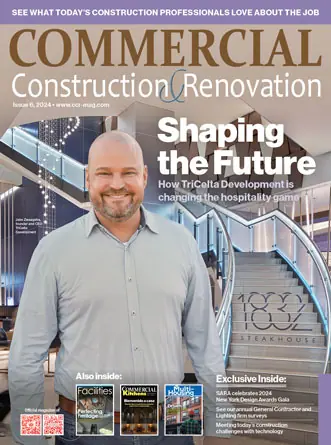








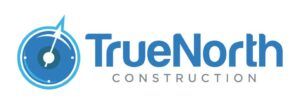

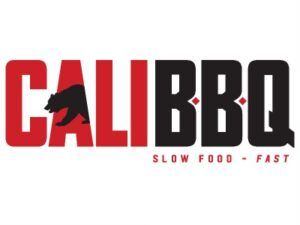

 The 2024 virtual Men’s Round Table will be held Q4, 2024, date TBD.
The 2024 virtual Men’s Round Table will be held Q4, 2024, date TBD.


